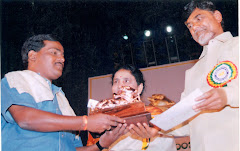Fiction
Fiction is the genre of imaginative narrative, including novels and short stories. More generally, fiction is written and oral imaginative literature, including comic books, fables, fairy tales, films, plays, poems and video games. Works of fiction need not be entirely imaginary, and may include real people, places, and events.
Fiction is largely perceived as a form of art or entertainment, although not all fiction is necessarily artistic. Fiction may be created for the purpose of educating, such as fictional examples used in school textbooks. Fiction is also frequently used in propaganda and advertising. Fiction may be propagated by parents to their children out of tradition or in order to instill certain beliefs and values. Fables with an explicit moral goal are not necessarily targeted at children, however.Fiction is a fundamental part of human culture, and the ability to create fiction and other artistic works is frequently cited as one of the defining characteristics of humanity.
Drama
Dramas can be performed in various media: improvisation, live performance, radio, film or television and nowadays web chat. Drama is also often combined with music and dance, such as in opera which is sung throughout, musicals which include spoken dialogue and songs, or plays that have musical accompaniment. Improvisational drama, a form of improvisational theatre, is drama that has no set script, in which the performers take their cues from one another and the situations in which their characters find themselves to create their own dialogue as they perform. Improvisational drama is made up on the spot using whatever space, costumes or properties are available.
Poetry
Poetry is a form of art in which language is used for its aesthetic and evocative qualities in addition to, or in lieu of, its ostensible meaning. Poetry may be written independently, as discrete poems, or may occur in conjunction with other arts, as in poetic drama, hymns or lyrics.Poetry, and discussions of it, have a long history. Early attempts to define poetry, such as Aristotle's Poetics, focused on the uses of speech in rhetoric, drama, song and comedy. Later attempts concentrated on features such as repetition and rhyme, and emphasised the aesthetics which distinguish poetry from prose. From the mid-20th century, poetry has sometimes been more loosely defined as a fundamental creative act using language.Poetry often uses particular forms and conventions to expand the literal meaning of the words, or to evoke emotional or sensual responses. Devices such as assonance, alliteration, onomatopoeia and rhythm are sometimes used to achieve musical or incantatory effects. Poetry's use of ambiguity, symbolism, irony and other stylistic elements of poetic diction often leaves a poem open to multiple interpretations. Similarly, metaphor and simile create a resonance between otherwise disparate images—a layering of meanings, forming connections previously not perceived. Kindred forms of resonance may exist, between individual verses, in their patterns of rhyme or rhythm.Some forms of poetry are specific to particular cultures and genres, responding to the characteristics of the language in which the poet writes. While readers accustomed to identifying poetry with Dante, Goethe, Mickiewicz and Rumi may think of it as being written in rhyming lines and regular meter, there are traditions, such as those of Du Fu and Beowulf, that use other approaches to achieve rhythm and euphony. In today's globalized world, poets often borrow styles, techniques and forms from diverse cultures and languages.
Screenwriting
Screenwriting refers to the art and craft of writing screenplays for film or television.Writing for film is potentially one of the most high-profile and best-paying careers available to a writer, and as such, it is perhaps the most sought after. It is increasingly difficult to make a living as a Telugu (Tollywood),Hindi (Bollywood), Tamil (Kollywood), English (Hollywood) or other areas screenwriter, but that does not stop tens of thousands of people from trying every year, as the capricious nature of the film industry makes it possible for a complete unknown to launch a career simply by writing a commercially-appealing screenplay and getting it into the hands of the right people.
Creative nonfiction
Creative nonfiction should not be confused with "literary journalism" and "narrative journalism." Creative Nonfiction is a type of writing which uses literary skills in the writing of nonfiction. A work of creative nonfiction, if well written, contains accurate and well-researched information and also holds the interest of the reader. Creative nonfiction is contrasted with "research nonfiction" which may contain accurate information, but may not be particularly well written and may not hold the attention of the reader very well. Literary journalism is, first and foremost, journalism, i.e., writing done from reporting, which excludes much other nonfiction like the essay. Literary journalism is a style of writing that combines the storytelling elements of fiction with the truth-telling elements of traditional journalism.Narrative nonfiction is a type of creative nonfiction which tells a story, for example, Black Hawk Down by Mark Bowden. Black Hawk Down began as a series of newspaper and Internet articles. Its availability as an Internet series gave the author the benefit of extensive feedback from viewers. Bob Woodward of the Washington Post is also noted for his skills at narrative nonfiction, in books like All the President's Men and Bush at War.There has been a recent movement among younger writers in the craft to adopt a more liberal meaning of the term "creative nonfiction". Some writers consider certain forms, most notably poetry, to be an acceptable form of creative nonfiction in certain cases.
Srivenkat Bulemoni.
Subscribe to:
Post Comments (Atom)









1 comment:
Very goog information. This is usefull for Film Writers and Newcomers.
Radhika Sirimalli,
Chicago,USA.
Post a Comment